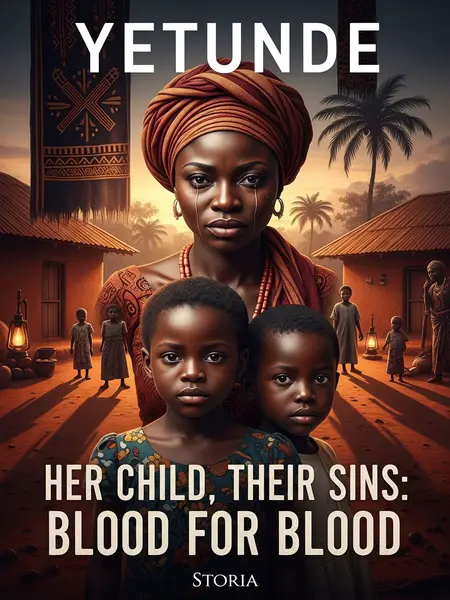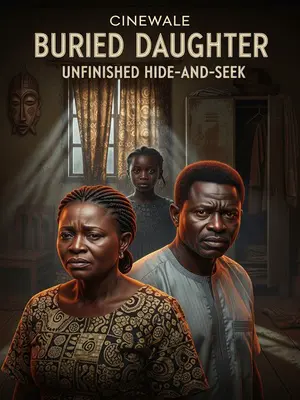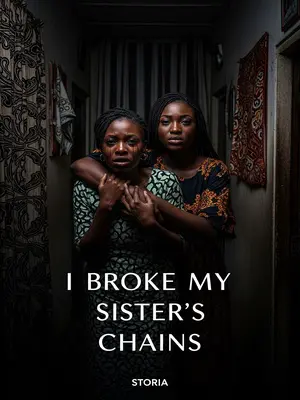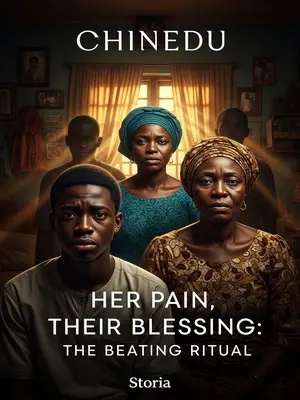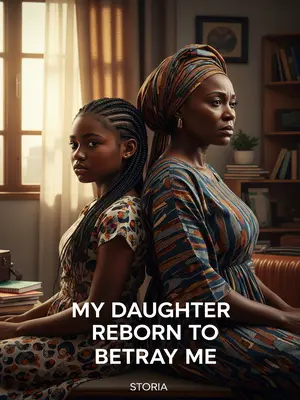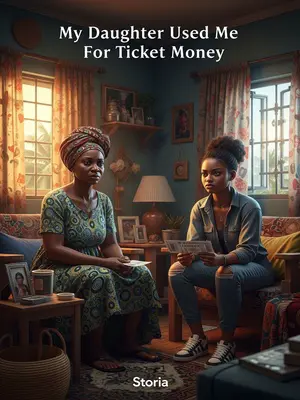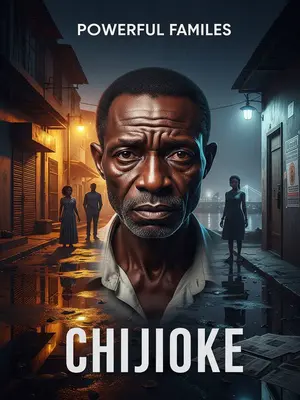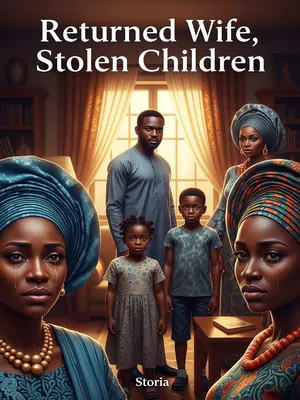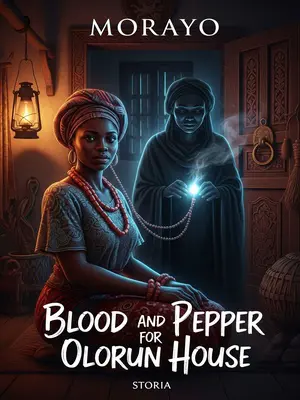Chapter 4: Broken Houses
Mr. Femi’s house stood old and tired, mud-brick walls, zinc roof reflecting harsh sunlight.
Goats and chickens scattered as our van pulled in, wrappers tied high, women’s voices floating from distant compounds. The house wore the look of a place where laughter packed its bag and left long ago.
Inside the compound, a small yard and old round well—clear signs of struggle. The well’s rusty bucket, guava tree dropping uneaten fruit, all spoke of neglect.
The main room scattered—empty bottles, tattered mats, plates dulled by age. The smell was a mix of disinfectant and quiet sorrow.
Mr. Femi matched the scene: rough hair, unshaved beard, eyes dull, face tired. His shirt faded, trousers hanging loose. Yet, he greeted us proper, nodding like a true Yoruba man, pain or no pain.
He didn’t resist, only gestured to plastic chairs. “Oya, sirs, please sit down. I no get much, but you fit manage.” Upbringing shining through the hardship.
After we sat, he didn’t wait for questions. He poured out his story in Yoruba and English, switching tongues as if to lessen the weight. Tears stood in his eyes but never fell.
He pointed at the empty provision shelf. “Even garri sef, sometimes we no get. Time just dey run like thief.”
For a year, caring for his daughter meant he couldn’t work. Even after she left the health centre, problems chained him at home.
Neighbours stopped coming. Church members, after early visits, drifted away. He was alone, carrying his cross.
To worsen things, his wife Yetunde left—couldn’t bear the pain, just vanished. He looked away, voice low, “She no fit stay. She say the pain too much.”
Now, only he remained for Eniola.
Loneliness clung to the walls. From the back room, the echo of a child’s song—soft, broken—floated out.
Even though Eniola could walk, her mind wandered. The doctor said severe autism. Mr. Femi described how she’d sit by the window, humming to herself, eyes chasing dust motes no one else could see. Sometimes, she’d laugh at shadows or suddenly burst into tears. “Dem say na autism,” he sighed, as if he still doubted the word.
He brought out a battered diagnosis report. Apart from the doctor’s note, it warned: Eniola should avoid strangers, or her emotions could scatter again.
He handled the paper like a last hope. The edges were worn, proof of countless readings.
At her age, healing was slow. Meeting strangers might spoil all the small progress.
“Abeg, make una no vex. If you see am, e fit spoil all the small progress she don make.” His voice cracked—a father’s pride, shame, and fear mixing together.
So, Eniola mostly stayed in her room.
Sometimes, he’d put her favourite cartoon on his small phone, just to see her smile, even for a second. The house stayed quiet—too quiet.
I dropped any idea of seeing Eniola.
I nodded. Even Captain Ifeanyi stopped tapping his pen, showing rare respect.
So Mr. Femi truly couldn’t leave home. No wonder he didn’t answer police invitation.
We exchanged glances—nobody wanted to press further. The truth sat plain before us.
Since Mr. Femi spoke first, Ifeanyi didn’t mention the Chijioke family massacre, only asked gently if anyone could confirm his alibi.
The answer was yes.
He mentioned Baba Sani, the old neighbour. “He dey buy our market, na him dey see us everyday.”
Baba Sani, over seventy, still sharp. He greeted us with “Ina kwana,” handed out bitter kola, insisted on walking to the police post with us.
He brought a tattered book, recording every garri and loaf he bought for Mr. Femi—evidence of a true neighbour.
With that, we could almost rule out Mr. Femi.
For once, bureaucracy and community joined hands.
He hadn’t abandoned his daughter for revenge. That was a relief.
But what about Yetunde?
Her name became a riddle. “Where she dey? Wetin she dey plan?” Some said east, some said next village. Nobody knew.
But before we could hunt for her, thunder struck again, scattering our careful plans.
